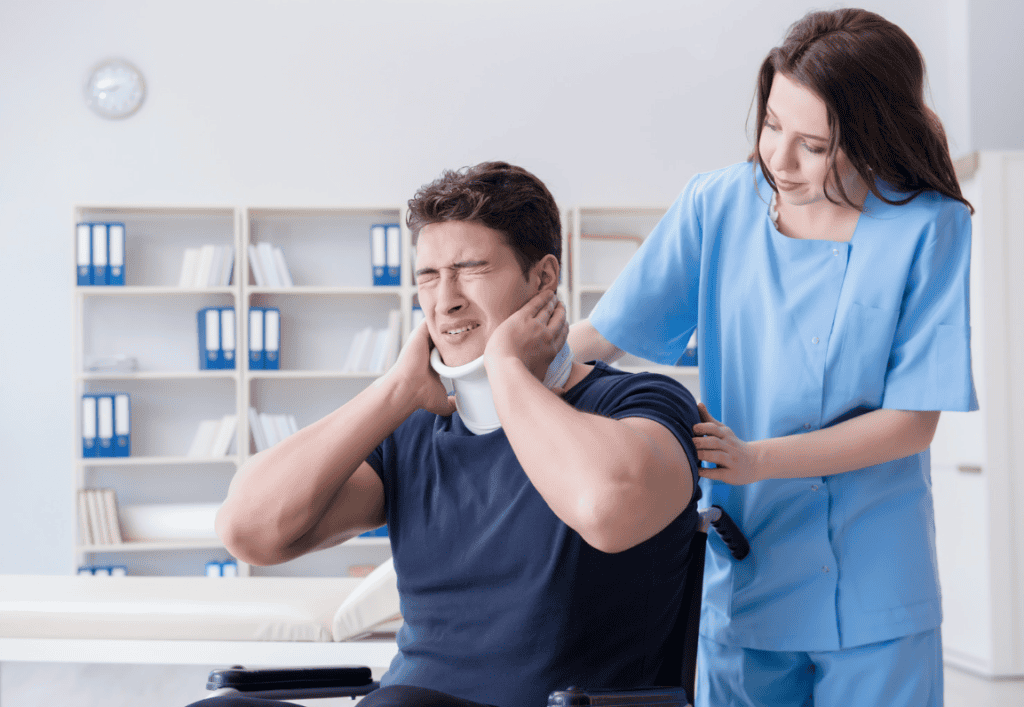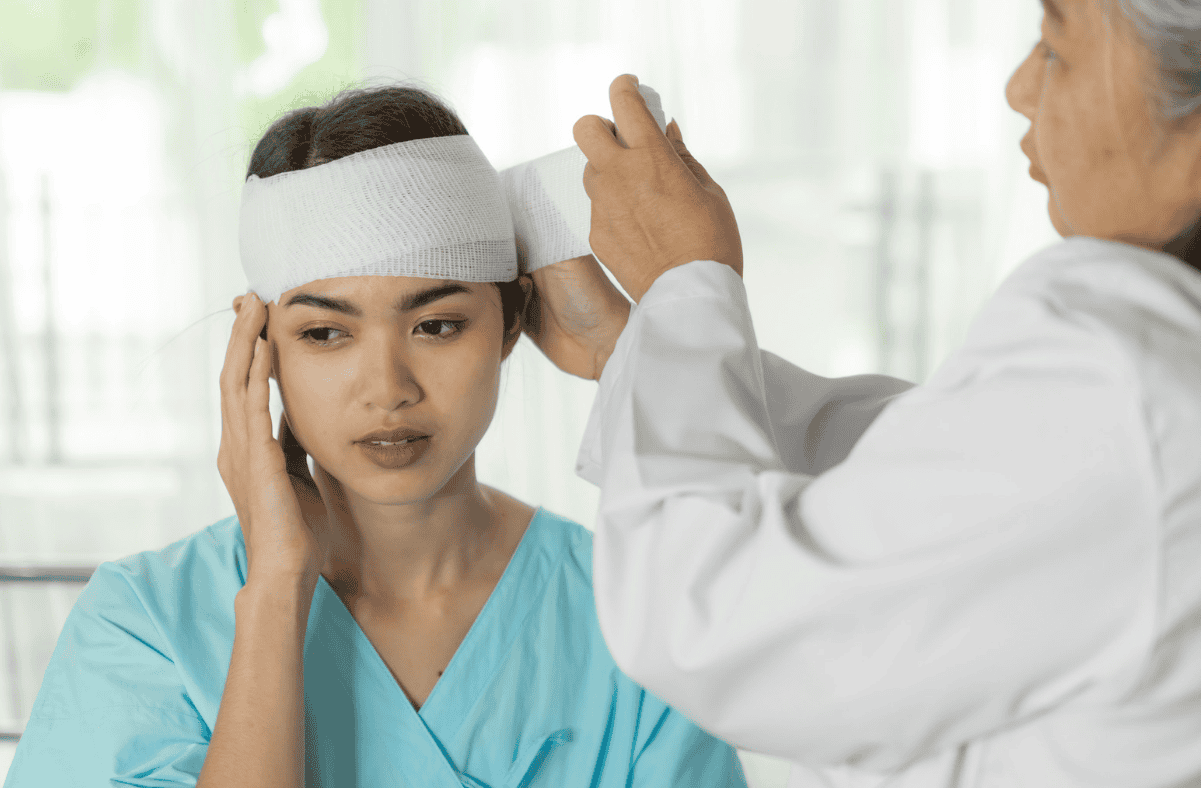This blog post aims to shed light on the surprising ways personal injury can affect mental health, offering insights and practical tips to help you or a loved one cope during the recovery process.
Sustaining a personal injury can be a life-altering experience that affects not just your physical health but also your mental well-being. Often, the focus remains on the physical recovery, leaving the emotional and psychological aspects overlooked.
The Unseen Emotional Toll of Personal Injury
The emotional aftermath of a personal injury often manifests as anxiety, depression, or even post-traumatic stress disorder, making the recovery journey even more challenging. Many individuals find themselves feeling isolated and overwhelmed, grappling with the reality of their injuries and the uncertainty of the future.
During such times, the guidance of a lawyer can be invaluable, as they not only provide legal assistance but also understanding and support throughout the healing process, as this dedicated St. Louis injury lawyer explains. It’s crucial to address these emotional strains head-on, integrating mental health support into the overall treatment plan to foster holistic recovery.
The Link Between Physical Pain and Mental Health
It’s no secret that chronic pain can lead to mental health issues, but the extent of this correlation is often underestimated. Persistent pain can cause a range of psychological and physiological reactions, including irritability, sleep disturbances, and a pervasive sense of hopelessness.
These symptoms can significantly impact an individual’s daily life and overall well-being. As the pain persists, it can exacerbate feelings of frustration and helplessness, contributing to conditions like anxiety and depression. Without addressing the underlying pain, these mental health challenges can become more entrenched, leading to a vicious cycle that is difficult to break.
Therefore, implementing effective pain management strategies is crucial, not just for achieving physical recovery, but also for safeguarding mental well-being. This holistic approach can help individuals regain control over their lives and improve their quality of life.

Social Isolation and Its Impact
Personal injuries often result in a period of immobility or reduced activity, which can significantly disrupt an individual’s daily routine and lead to social isolation. This isolation is not merely a physical separation from others but can also create emotional barriers, exacerbating feelings of loneliness and depression.
The lack of interaction with friends, family, and colleagues can intensify these emotions, as the injured person may feel detached from their usual social circles and activities. To combat these challenges, it is crucial to stay connected with friends and family, even if only through virtual means like video calls, social media, or messaging apps.
These digital platforms can bridge the gap and provide a sense of closeness and belonging during the recovery period. Additionally, support groups and community activities tailored for individuals recovering from injuries can offer a lifeline.
Financial Stress and Anxiety
The financial implications of a personal injury can be overwhelming, affecting various aspects of your life. Medical bills can quickly pile up, covering everything from emergency room visits and surgeries to follow-up appointments and medication.
Rehabilitation costs add another layer of financial strain, as physical therapy and other necessary treatments can extend over months or even years. Additionally, the loss of income due to an inability to work can create a significant financial burden, potentially leading to mounting debt and financial instability.
These financial pressures are often accompanied by stress and anxiety, impacting your mental well-being and making recovery more challenging. It’s crucial to seek financial advice to navigate these difficult times. Exploring options like insurance claims can provide some relief, and government assistance programs may offer additional support.
The Role of Therapy and Counseling
Professional help can be invaluable in navigating the mental health challenges that come with a personal injury. When dealing with the aftermath of such an event, it can be overwhelming to manage on your own. Therapists and counselors, who are trained experts in mental health, can provide coping strategies tailored to your specific needs.
They offer emotional support and a safe space to express your feelings without judgment, creating an environment where healing becomes possible. Various therapeutic approaches, such as cognitive-behavioral therapy (CBT), have been shown to be particularly effective in treating conditions like PTSD and depression that are related to physical trauma.
CBT helps by changing negative thought patterns and behaviors, which can significantly improve your mental well-being. Don’t hesitate to seek professional help; it can make a world of difference in your recovery journey and enhance your overall quality of life.

The Importance of a Support System
Having a strong support system can make a significant difference in your mental health during recovery. Friends, family, and support groups can offer not only emotional support but also practical assistance and encouragement to help you navigate the challenging path ahead. These relationships provide a safe space where you can express your feelings without judgment and receive the understanding you need.
It’s important to remember that you don’t have to go through this journey alone. Don’t be afraid to lean on your support system when you’re feeling overwhelmed; they are there to help.
Sometimes, just having someone to talk to can lighten the emotional load and make the recovery process more manageable. Reaching out for support can also help you gain new perspectives and strategies for dealing with difficulties, ultimately playing a crucial role in your healing and growth.
Personal Injury Can Affect Mental Health for Long Term
Even after the physical wounds have healed, the mental scars of a personal injury can linger for years, affecting various aspects of life such as relationships, work, and daily functioning.
Long-term mental health issues such as chronic anxiety, depression, and PTSD are not uncommon and can manifest in different ways, including nightmares, flashbacks, and heightened stress responses.
Regular follow-ups with mental health professionals, ongoing therapy sessions, and self-care practices like mindfulness and exercise are essential for long-term mental well-being.
Engaging in support groups and reaching out to loved ones for support can also be incredibly beneficial. Awareness and early intervention, including education on mental health symptoms, are key to preventing these issues from becoming chronic and adversely impacting one’s quality of life.
Recovering from a personal injury is a complex process that affects both the body and the mind. By understanding and addressing the mental health impacts, you can take proactive steps towards a holistic recovery.
Remember, it’s okay to seek help and lean on your support system. Your mental health is just as important as your physical well-being, and taking care of both is essential for a full and speedy recovery. If you’re struggling, don’t hesitate to reach out to a mental health professional for guidance and support.


